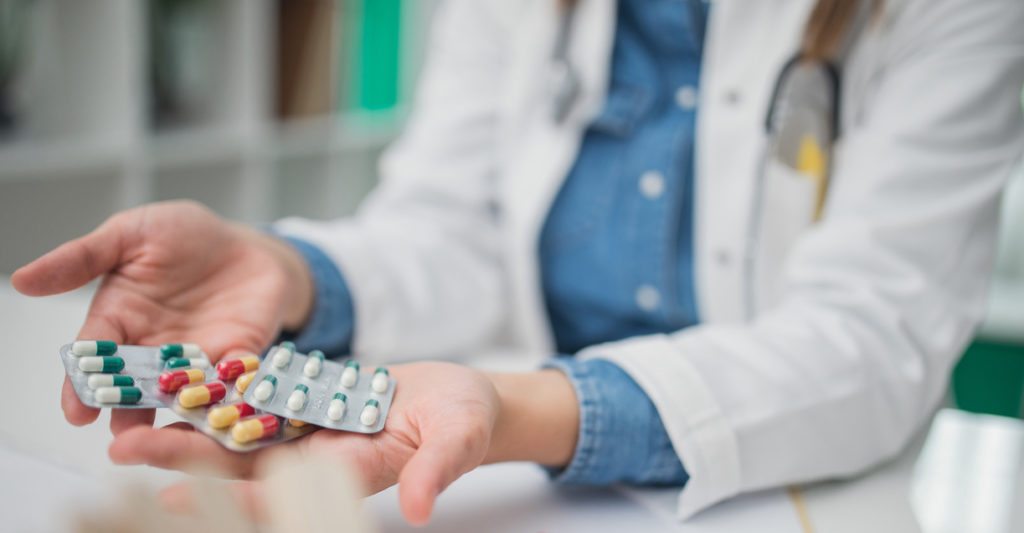If your child has an infection, do you expect to be prescribed antibiotics? Many parents feel disappointed returning home empty-handed after a visit to a medical practice. But it turns out your health professional could be doing you and your child a favour by not prescribing antibiotics. Read on to find out why NPS MedicineWise suggests that using antibiotics when they’re not needed can cause more harm than good.
What are antibiotics?
Antibiotics are medicines used to treat a range of infections caused by bacteria. Antibiotics work by killing bacteria or stopping them from multiplying. This helps the body’s natural immune system fight infection. Different antibiotics work against different types of bacteria.
But we need to use antibiotics with care. When an antibiotic is used, bacteria can change to protect themselves. Sometimes the bacteria changes enough that the antibiotic stops working. This is called antibiotic resistance. Someone who has recently taken antibiotics is more likely to have resistant bacteria in their body which can easily be passed onto others. Infections caused by antibiotic resistant bacteria are harder to treat and can be very serious. To stop antibiotic resistance, we should only use antibiotics when they are really needed.
Antibiotics aren’t needed for all infections
Antibiotics only work on bacterial infections. They will not work on infections caused by viruses such as colds and flu. Your child’s immune system is very powerful and most colds, coughs, earaches and sore throats will get better by themselves. For example most people with a sore throat will recover within a week whether they had an antibiotic or not. Taking an antibiotic when it is not needed, will not make a significant difference to how you feel or how fast you recover.
Green snot doesn’t mean your child needs antibiotics
Lots of people think that coloured mucus or phlegm is a sign of a bacterial infection. Truth is yellow or green mucus or phlegm can occur in both bacterial and viral infections and doesn’t mean an antibiotic is needed.
If your child has a cold, cough, earache or sore throat you can help them feel better by:
- making sure they get plenty of rest
- encouraging them to drink water to avoid dehydration
- making sure no one smokes around them.
If your child has a headache or fever, simple over-the-counter medicines like paracetamol or ibuprofen can help.
But ear infections need antibiotics right?
Ear infections are common in children, particularly in the first few years of life. Studies now show that most ear infections get better just as quickly whether your child takes antibiotics or not. Ear infections can be very painful, so the most important treatment is actually pain relief, not antibiotics. There are however, some patients who may benefit from antibiotics for their ear infection:
Your child is more likely to benefit from antibiotics if they:
- are under the age of 2 years, with infections in both ears
- have fluid coming out of their sore ear
- are of Aboriginal or Torres Strait Islander descent.







